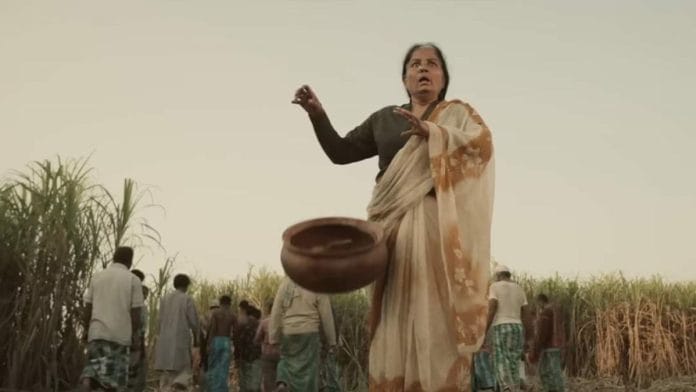New Delhi: Rongatapu 1982, which won the Best Assamese Film Award at the 71st National Film Awards recently, tells stories of alleged atrocities local people faced at the hands of illegal migrants in the early 1980s. But director Adityam Saikia isn’t calling it a political film.
“I am an artist, and this is not a political film. My story is about the four women and what they face,” Saikia told ThePrint. The voiceover in the film’s trailer mentions that it is a forgotten chapter in history. Then these words are displayed on the screen—The Brutal Truth of Laletapu.
Saikia, a fashion designer, made his debut with Rongatapu 1982, which originally had a different title.
“When we released the poster as Laletapu 1983, there were protests because people thought we would misrepresent the events that occurred,” said Saikia. The name was then quickly changed to Rongatapu 1982 to maintain distance from ‘politics’ and controversy.
The original title referred to 20 March 1983, when seven Assamese men were allegedly killed by illegal immigrants from Bangladesh. However, even with the change in the title, the film makes references to the incident and the Nellie massacre that took place on 18 February 1983. As per reports, more than 1,800 Muslims from 14 villages were slaughtered by a mob in a span of six hours.
Saikia’s film focuses on the plight of residents when the number of immigrants started growing post-1971 Bangladesh Liberation War.
“In the 1980s, there were many incidents in Assam where local Assamese people were attacked by illegal immigrants, and it is still a burning issue. I have heard this story from many people, and it has become my inspiration,” said Saikia.
Also read: Dhumketu brings Dev & Subhashree on screen after 12 yrs. They were Bengali cinema’s ‘it couple’
Script of oral history
Rongatapu 1982 tells the story of Morom (Aimee Baruah), a pregnant woman, and the sisters Rupali (Kalpana Kalita) and Mala (Alishmita Kalita), who have been traumatised due to a horrific gang rape, and what they face due to violence inflicted by illegal settlers. Rafiza (Rimpi Das) is also an illegal immigrant, but equally tormented at the hands of the men of her community.
“My main topic was never about religion, but about how war or conflict impacts everyone. I have not specifically named the illegal settlers, only stated that they have inflicted a lot of pain on the local populace,” said Saikia.
While religion isn’t mentioned explicitly in the film, the director has chosen attire and language spoken by particular characters to distinguish between local Assamese and migrants. Rafiza’s dialect resembles that of the immigrant population. The character deals with violence inflicted by men of her own community, not just on Assamese Hindus. It goes to show how the brutality of illegal immigrants is directed at women, irrespective of religion.
Saikia did not read history textbooks or form a research team but relied on accounts of people who had witnessed or experienced violence from immigrants from Nagaon and Jamugurihaat.
“The inspector who was in charge of where one such incident in the 1980s had taken place called me to compliment my efforts in making the movie. I believe this movie will encourage people to address sensitive matters,” said Saikia.







Mr. Saikia should be ashamed of the gross violations of human rights of Bengalis in Assam during the 1960s, 70s and 80s. In these three decades, countless Bengalis were subjected to horrific hate crimes by hooligans of the AASU (All Assam Students Union). Under the guise of Assamese nationalism, the Bengali minority was subjected to brutalities and horrors which have no parallel in modern India. This is the most violent attack on the life and dignity of a community the modern Indian nation has seen.
Instead of being deeply ashamed of this, Mr. Saikia is celebrating it. Instead of condeming such violence, he is celebrating the anti-Bengali pogroms carried out by the AASU.
The Assamese have always been xenophobic in their attitude towards Bengali refugees from Bangladesh – both Muslim as well as Hindu.
The Assam Movement did not differentiate between Muslim and Hindu Bengalis. Both were mercilessly targeted – murdered, tortured, raped and what not.
Hope Mr. Saikia, in his pursuit of truth, also directs a film on the horrors of the Nellie massacre – more than 5000 dead in a day of rioting.